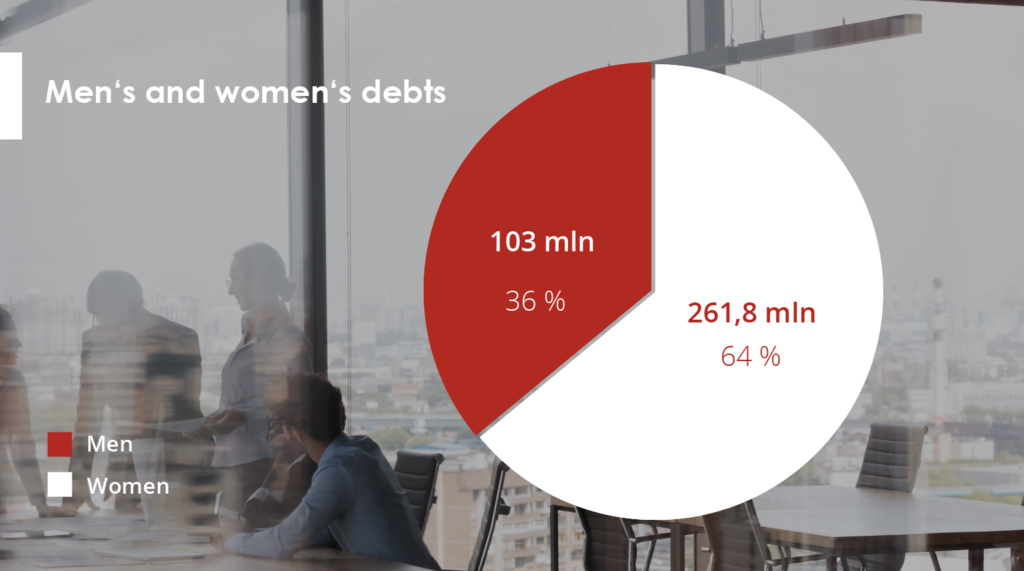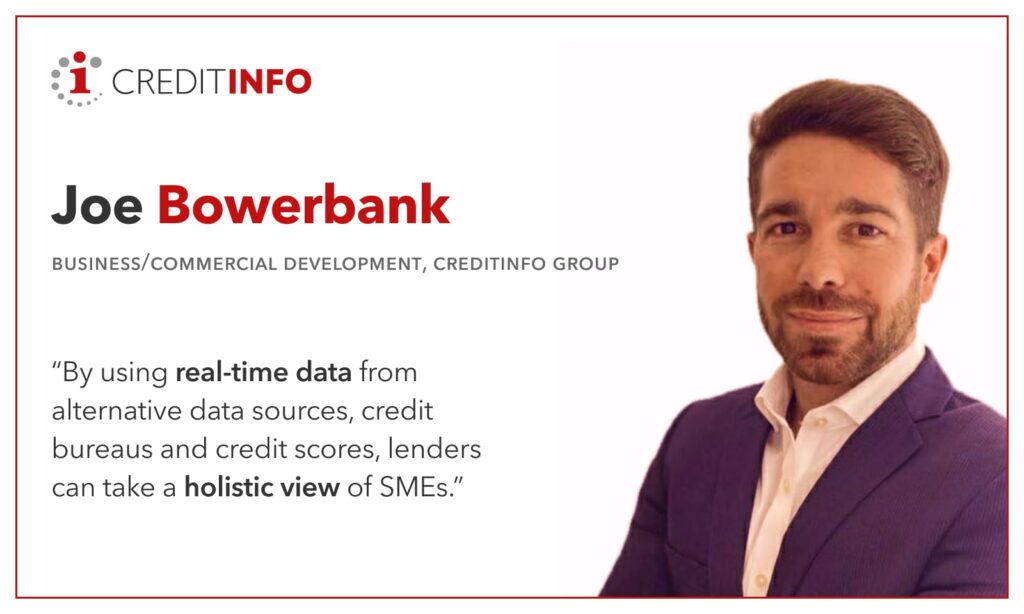The Role of Artificial Intelligence and Machine Learning in Credit Scoring

Executive Summary
The use of artificial intelligence (AI) and machine learning (ML) in credit scoring is revolutionizing the lending industry. By leveraging vast amounts of data and advanced algorithms, lenders are able to more accurately predict credit risk, improve operational efficiency, and expand access to credit for underbanked individuals and small businesses. This white paper explores the benefits and challenges of AI and ML credit scoring, and provides guidance for lenders on how to successfully integrate these technologies into their lending processes.
Introduction
Traditional credit scoring models rely on a limited set of data points, such as payment history, outstanding debt, and length of credit history, to assess creditworthiness. These models are effective for many borrowers, but they can be limiting for individuals with thin credit files or non-traditional sources of income. AI and ML credit scoring models, on the other hand, can analyze a vast array of data points, including non-traditional data sources, to develop a more accurate and comprehensive picture of a borrower’s creditworthiness.
Benefits of AI and ML Credit Scoring:
1. Improved accuracy: AI and ML algorithms can analyze a wide range of data points, including non-traditional data sources such as social media activity and utility bill payments, to develop a more accurate picture of a borrower’s creditworthiness. This can result in more accurate credit scores and better loan decisions.
2. Expanded access to credit: Traditional credit scoring models can be limiting for individuals with thin credit files or non-traditional sources of income. By analyzing a broader range of data points, AI and ML credit scoring models can expand access to credit for underbanked individuals and small businesses.
3. Increased efficiency: AI and ML credit scoring models can automate many aspects of the lending process, reducing the need for manual underwriting and improving operational efficiency. This can result in faster loan decisions and a better borrower experience.
Challenges of AI and ML Credit Scoring:
1. Data privacy and security: As AI and ML credit scoring models rely on vast amounts of data, data privacy and security are critical concerns. Lenders must ensure that they are collecting and using data in compliance with applicable laws and regulations, and that they have robust cybersecurity measures in place to protect sensitive borrower data.
2. Bias and discrimination: AI and ML algorithms are only as good as the data they are trained on, and if that data is biased, the algorithms can perpetuate that bias. Lenders must be mindful of potential biases in their data and take steps to mitigate any potential discrimination in their lending decisions.
3. Explainability: AI and ML algorithms can be complex and difficult to interpret, which can make it challenging for lenders to explain their lending decisions to borrowers. Lenders must be able to provide clear explanations of their credit scoring models and lending decisions to borrowers.
Conclusion
AI and ML credit scoring has the potential to revolutionize the lending industry, providing more accurate credit scores, expanding access to credit, and improving operational efficiency. However, lenders must be mindful of the potential challenges, including data privacy and security, bias and discrimination, and explainability, and take steps to mitigate these risks. By investing in AI and ML technologies and developing robust risk management practices, lenders can successfully integrate these technologies into their lending processes and provide better loan decisions and a better borrower experience.
Samuel White
Director of Direct Marekts, Creditinfo Group.
Lithuanian debts increased by €6.8 million since the beginning of 2023

According to Creditinfo Lithuania’s latest analysis, Lithuanian debts have increased by €6.8 million since the beginning of the year, reaching a total of €364.8 million.
Of this amount, male’s debts stand at €261.8 million, while female’s debts are at €103 million. This is almost €6.8 million more than at the beginning of this year (€358 million). The total number of borrowers has also risen by 5,000 in the first quarter of this year, with the current total standing at almost 201,000.
Creditinfo Lithuania has recorded almost 201,000 debtors in its systems for March, with a total of 235,300 individuals having 235,300 debts in Lithuania.
After a more detailed examination of the debtor data, it was found that over 129,000 males and 72,000 females are currently in debt, making up 64% and 36% of all debtors respectively. Additionally, 32,500 males and almost 20,000 females have multiple debts, with 25.3% of male debtors and 27.7% of female debtors holding two or more debts.
On average, males owe €2,029, which is 30% more than the average debt owed by females (€1,435). This trend, coupled with the higher number of male debtors, results in men holding 78% of the total debt amount, while women hold only 22%.

During the first quarter, an additional 5,000 individuals in Lithuania fell into debt.
In March, the total number of individuals in debt amounted to 201,000, marking an increase of 5,000 from January’s 196,000. The total value of debt owed by all debtors also rose from €358 million to €364.8 million, with the total number of debts recorded in the credit bureau system increasing by 5,300. The largest number of new debts to households registered in the first quarter of this year, after debts to the financial sector, were for utilities and energy, with a total of 1,518 debts (12%).
“The analysis suggests that the majority of new debts recorded this year can be attributed to the energy and heat price crisis. Rising fuel costs have resulted in increased indebtedness, with people seeking short-term financing in order to balance consumption and expenses,” explains Aurimas Kačinskas, the Head of Creditinfo Lithuania. “Not everyone has had sufficient time to alter their financial habits, which has resulted in the growing number and value of debts.”
Men aged between 35 and 45 are considered to be the most high-risk debtors
Despite fluctuations in the number of borrowers and their levels of indebtedness, the typical borrower profile has remained consistent in recent years. Men aged 35-45 are the riskiest debtors, with debts amounting to €75 million, accounting for almost 29% of the total amount owed by men. The second riskiest group is men aged 45-55, with €61 million in debt, representing 23.3% of the total amount owed by men. In third place are men aged 25-35, who hold €55 million in debt, accounting for 21% of the total amount owed by men. Men aged 55-65 hold €43 million in debt, while those over 65 hold €17 million. Men under 25 hold the lowest amount of debt at almost €15 million.
Among female debtors, the under-25 age group has the lowest amount of debt, while other age groups have the following distribution: €29 million (45-55), €26 million (35-45), €20 million (55-65), and €17 million each (25-35 and over 65).
According to Mr Kačinskas, it is important for citizens to assume their financial obligations responsibly and meet them on time to maintain a positive credit history, which determines their access to financial services, loans, credit cards and payment provisions.
Creditinfo Partners With VisionFund International to Provide Analytics and Automation Solutions

Creditinfo Group, the leading global service provider for credit information and risk management solutions, today announces a multi-market partnership with VisionFund International to provide analytics and automation solutions throughout their global Microfinance Network.
Creditinfo’s credit risk analytics and automation solution will help VisionFund to expand their customer base whilst controlling costs. This will enable VisionFund to increase financial inclusion and improve economic conditions for lower income clients around the world.
Creditinfo will draw upon its global and regional experts to support the implementation of these solutions over a three-year period. Initially, Creditinfo will provide its solutions to six of VisionFund’s markets with a view to extending them to additional VisionFund’s markets in due course.
Paul Randall, CEO at Creditinfo said: “We are delighted to have been selected by VisionFund International to provide IDM Decision Automation solution to their global network of MFIs (Microfinance institutions). Our understanding and experience of working across over 20 markets is strongly aligned with VisionFund’s experience as one of the largest multinational networks of MFIs with its operations spanning 28 countries and reaching over 1 million active customers. We are excited about the journey ahead and helping VisionFund realize its goal of enabling clients to grow their livelihoods and secure their futures.”
Karen Lewin, Director of Credit Risk at Vision Fund International said: “With Creditinfo’s solution, we will increase our outreach, and improve both lending efficiency and our credit risk assessment capabilities, to better meet the needs of all our customers. Creditinfo’s team of global and local experts will provide us with the level of support we need to achieve these goals and increase financial inclusion in the markets where we operate.”
For information visit www.creditinfo.com
Kredītinformācijas Birojs and Citadel Bank Sign an Agreement to make It easier for Ukrainian citizens to receive Financial Services

It has already been reported that last year the “Credit Information Bureau” of Latvia (KIB) concluded an agreement with the “International Credit Information Bureau” in Ukraine ( Мидрождение бюро кредитних історий ) on the exchange of credit history data of Ukrainian nationals.
One of the safest businesses in Lithuania – Dental Services

The profitability of some companies is almost half their revenues, very few go bankrupt.
Vilnius, Lithuania 06/02/2023. Although most dental businesses are small and usually employ fewer than 10 people, this is one of the most stable businesses in Lithuania. Profitability often exceeds one-third of income and only a few become insolvent. Dental businesses are 7 times less likely to go bankrupt than the average insolvency across all other businesses, according to an analysis conducted by Creditinfo Lithuania.
According to data from January 2023, there are currently almost 2,000 dental businesses in Lithuania employing 9,500 people. The number of companies and their employees is growing year on year. Dental businesses are generally small, with more than half of them employing fewer than 10 people. Only 12 organisations have created more than 50 jobs, while the largest dental service companies are Vilnius University Hospital (293), SB Dental Clinic (168), Denticija (153), Smile Academy (126), Smile Laboratory (124), Vilnius Implantology Centre Clinic (93), Panevėžys City Dental Clinic (72), Laudenta (71), Pasirink (66) and Žvėrynas Dental Clinic (59).
Revenues grow year on year, profitability remains high
Despite the pandemic’s restrictions on the medical services sector between 2020 and 2021, the total revenue of dental companies has grown consistently year on year, reaching €294.6 million in 2021, an increase of 39.8% compared to 2020 (€210.7 million), which in turn is an increase of 76% compared to 2019 (€167 million).
The top 10 companies with the most revenue in 2021 are SB Dental Clinic (€8.2 million), Vilnius Implantology Centre Clinic (~€7 million), Denticija (€3.2 million), Smile Academy (€3.1 million), Prodenta (€3.1 million), Žvėrynas Dental Clinic (€3 million), Sveikatos Gija (€2.9 million), Šiauliai Implantology Centre (€2.8 million), Laudenta (€2.6 million) and Dental Harmony (€2.6 million).
Dental service companies are characterised by relatively high profitability, reaching up to 45%. The top ten companies with the highest profits in 2021 are Laudenta (€922 thousand), SB Dental Clinic (€917 thousand), Implantera (€739 thousand), Šiauliai Implantology Centre (€713 thousand), Smile Design (€688 thousand), Vilnius Implantology Centre Clinic (€644 thousand), Klaipėda Orthodontics Centre (€592 thousand), Dantima (€556 thousand), Donatas Jurgaicis Odontology Clinic (€529 thousand) and Teeth Centre (€512 thousand).
“The dental services business has advantages – patients usually pay for services immediately, which speeds up the turnover of funds. In addition, some dental services are subject to significant VAT exemptions, which reduces the tax burden and increases the profitability of the companies,” says Jekaterina Rojaka, Head of Business Development and Strategy at Creditinfo Lithuania.
However, not all companies were profitable, with 148 dental service providers declaring a loss in 2021, compared to 128 in pandemic year 2020 and 133 in pre-pandemic year 2019.
Dentists 7 times less likely to go bankrupt
The dental services sector has a particularly low risk of bankruptcy compared to all other sectors, with 1% of firms currently at high risk of bankruptcy and 0% at the highest risk. The high and highest risk classes for late payment are 3% and 2% of companies, respectively. The riskiness of dental firms was slightly higher at the beginning of 2021, with 4% of firms in the high bankruptcy risk class (none in the highest) and 11% in the high and highest delayed payment risk classes.
No dental companies went bankrupt in 2021 or 2022, while 26 firms have become insolvent since 2003, an average of 1-2 per year.
The dental business is characterised by a low level of debt. As of January 2023, there were 98 registered debts in the credit bureau’s system, totalling €95 thousand. The average debt was €971.
Compared to companies operating in other sectors in Lithuania, dental service companies are 7 times less risky. For example, in January this year, 1.3% of dental businesses were classified as high and highest risk, compared to an average of 9.5% for all other businesses in Lithuania. In terms of the risk of late payment, 4.5% of firms were in the high and highest risk classes, while the average for all other firms was 17.2%.
Almost a fifth of dental businesses (359) have not yet submitted their financial statements for 2021.
More information:
Jekaterina Rojaka, Head of Business Development and Strategy, Creditinfo Lithuania (jekaterina.rojaka@creditinfo.com)
The Know Your Customer (KYC) world and Creditinfo’s role in it.

The acronym KYC stands for three very simple and understandable words – Know Your Customer. But the meaning of the processes and expectations behind those three letters are most often not so simple and straightforward, as whoever must deal with this today already well-known acronym, knows that the world and the industry behind this magical acronym, is already vast and growing every day.
KYC in very essence means that you must have understanding and information of the background of your customer. Often this information is divided into three basic categories:
- Identification of the persons connected or operating behalf the customer.
- The field of activity or daily business including the understanding of the origin of the customers funds.
- The understanding if customer possesses certain risks while having any business relationships with him.
Mainly this sort of detective work is required in the purpose of mitigation the risks in anti-money-laundering/fight against terrorism financing (AML/CTF) but it is also relevant in the process of imposing international sanctions as sanctioned persons are interested that their business interest would remain undiscovered.
Even companies that are not subject to AML regulation need to ensure that they stay out of trouble caused by risks that are risen because of partners or clients with fraudulent, criminal, or sanctioned background, as this may result with loss of revenues/funds, bad business reputation or fines by authorities.
So therefore, it is essential for market entities to trust their business affiliates and therefore they need to verify that everything is OK with their customers and threat of the damage caused by realization of different risks, is minimized.
What is happening in Europe to strike this conversation now?
One very practical side for knowing your customer is to be sure that you’re not violating any sanctioning regime in force. Sanctions and sanctioning regimes may not be familiar to all of us who we just are involved our day-to-day business, but this obligation is something we all must know and follow. International sanctions are seen as sort of political means for influencing certain group of entities, jurisdictions, or organizations to behave in line to accordance with the international human rights, rules of law and territorial integrity. Sanctions are imposed in a way that all private and legal entities are obliged to fulfill them, authorities who are imposing them are usually international organizations (EU, UN) or state governments.
As Russia launched massive war campaign in Ukraine in February 2022 and has performed several actions against Ukraine’s territorial integrity already from year 2014 this kind of behavior has naturally found a reflection from EU by imposing sanctions. As from 2014 there was already two regimes in force (regulations EU No 269/2014 and No 833/2014) it was easy on 2022 to EU to add several sanctioning updates (altogether by 8 packets) against Russia (and Belarus).
As the conflict remains in Ukraine and also as there are several war crimes discovered performed by Russian troops during the occupation of Ukraine, we can be more than certain that EU will impose more updates to Russian sanctioning regimes. This only intensifies the need for market entities to have a clear understanding on what are the situation regarding the restrictive measures in force and where to find that information.
How is CREDITINFO playing a role in this?
Mitigating the risks is always the question of having updated and trustworthy information that person must have for making decisions and enforcing correct procedures. Regarding risk mitigation and imposing enforced sanctioning regimes clients often face themselves in front of different questions –
- What exactly do they have to do?
- How do they do it?
- Where can they find help and trustful partner for this?
- Are the solutions for doing it comfortable and simple to use?
- How expensive is it?
Providing both, the trustworthy information from respectful sources and the solution for being compliant in the regards to that obligation (by using Creditinfo-offered solution) is one of the ways of building up successful client relationship in KYC sector (obligations in KYC area may differ depending on the AML/TFC and imposing sanctions viewpoint). KYC procedures regarding sanctions can be divided into two different service blocks:
- Identifying the persons behind and connected to legal entity.
- Easy to use, reliable screening solution for determining whether there are imposed sanctions or not.
It is important to have flexible products in place for meeting the needs for most of the market entities as clients tend to prefer to order all the solutions from one place. For example, clients may have the need only for determining certain persons connected with legal entities (like UBO’s), other clients may only need data sources for setting up internal screening procedures for their inter-company use, while others are just willing to outsource everything (analysis, data and screening).
Lastly, instead of being in the last mile lets be the first! As already mentioned, there are different market entities who are operating in KYC business, and they are all seeking for cost efficient and trusted data sources for providing best data quality with best price to their customers. Creditinfo Group’s presence in several different countries, with the direct access to local state registry information or other base data source in those countries therefore makes us one of the trusted partners for well-known global companies.
KYC products are in process of continuous development and as the needs for our clients change, we need to align our services accordingly. If there are ideas, proposals, or questions, please feel free to reach me via email – urmas.pai@creditinfo.com
Urmas Pai
KYC & Fraud Global Product Manager
JSC “International Bureau of Credit Histories” launched the chatbot “MBKI online” in order to provide Ukrainians and migrants from Ukraine with access to their credit histories.

Lending is one of the main elements of the modern financial system. In one way or another, most people rely on loans from banks – whether these are credits, mortgages, installments, credit cards to pay for critical goods and services. An important role in this process is played by credit bureaus that collect, store, process and transmit information on borrowers’ payment discipline, credit scoring and current obligations.
However, when people move to a new country or are forcibly evicted from their homes due to occupation or fleeing war – this is what many Ukrainians are currently experiencing – it becomes much more difficult to access financial and other services. This unfortunately disadvantages refugees and adds to the problem regardless of whether they had good or bad credit history before.
Aiming to resolve issues related to solvency confirmation of the tenant from Ukraine and checking the credit history of Ukrainians when applying for a loan or employment, JSC “IBCH” (one of the largest Credit History Bureaus in Ukraine, a member of the international Creditinfo Group since May 2021) created the “MBKI online” chatbot.
For more than 16 years IBCH (Creditinfo Ukraine) has been cooperating with the largest banks and non-bank financial institutions, including foreign financial institutions and credit bureaus of other countries. The organization is now focusing its attention on supporting Ukrainians, both in Ukraine and abroad, with getting access to credit reports.
Kateryna Danylchenko, CEO of JSC “IBCH” (Creditinfo Ukraine), stated, “Since the beginning of the war in Ukraine, over 6 million people – including myself, my fellow colleagues and partners– have been forced to leave the country at short notice with no idea if or when they will return. Displaced Ukrainian refuges face a whole host of challenges without necessary documentation or access to registries. While JSC “IBCH” (MBKI, Creditinfo Ukraine) became the first Ukrainian bureau to launch cross-border data sharing with bureaus from 5 countries, it is also important to assure easy and mobile direct-to-consumer gate to credit history reports. “MBKI online” is so important in helping Ukrainians staying in country and abroad gain online access to their credit histories (also in English), so they can prove their ability to make payments on time to landlords or new employers, follow their credit history updates and bureau score change, as well as to report about lost identification documents.”
“Creditinfo was set up to aid financial inclusion through making credit information more easily accessible and digestible for borrowers and lenders.” – comments Paul Randall, CEO Creditinfo Group. “I’m so glad that there’s something practical we’ve been able to do to help Ukrainian refugees across Europe to access financial services. The creation of this chatbot is an important development in our journey to make the lives of everyone forcibly displaced by this war that tiny bit easier.”
The “MBKI online” chatbot, available on Viber and Telegram, gives Ukrainians access to their own credit history and offers an easy way of identification including using BankID.
Chatbot enables the customer:
• To get a certificate about credit history (in Ukrainian and English);
• To find out personal credit score;
• To get answers to basic questions about credit history;
• To inform the Bureau about the loss of a passport or other identity document;
• To ask for a loan and find out available offers.
Chatbot accepts different payment methods (including bank card, Apple Pay and Google Pay). For more information and to start working with the service, follow the link: https://credithistory.com.ua/bots/
Evolution of customer onboarding and risk assessment

This year, Creditinfo celebrated its 25-year anniversary, so I decided to look back on how the landscape in effective credit risk management has evolved.
While it was a little before my time, I’m sure there are still many people today who remember that the only way to open a bank account, apply for a loan or to be considered for a mortgage was to visit your local branch and sit with a loan officer. Though, this is still the case in many emerging markets even today, there will be some small differences on the data used and the risk assessment criteria that is in place.
Historically, a visit to the branch would involve meeting a loan officer who would then try to understand your circumstances before making an approval. If there was a past relationship or a connection (family member, friend, etc) with the loan officer, this would usually work in your favor. It was a direct relationship that usually lasted a lifetime. The loan officer would know or at least try to understand as much personal information on your employment, income, and expenses as possible and then would make a personal judgement to provide you with a form of credit. All of this was most likely completed and documented on papers and filed into a filing system for record.
Fast forward a few decades and not only are local branches disappearing, but also the idea of sharing personal information with a “stranger”, along with any supporting documents that validate your circumstances are a thing of the past. In a world of smartphones, tablets, and access to the internet 24/7, we have moved to a new wave of digital lending.
Lenders are implementing new strategies today to meet the end needs of customers by enabling access to credit instantly at their fingertips. Digitalization has become the new norm in lending and to succeed today, lenders need to adjust and transform their platforms. It is now a thing of the past to fill in an application form on paper when we have a smartphone in our pockets that can allow us to fill in the same information into a mobile application within a few minutes. As part of the loan onboarding, we can now validate our identity through biometric authentication options – fingerprint analysis, selfie/face recognition and document validation, etc. eliminating the need to do human to human verification.
The challenges from old-fashioned lending methods, i.e. understanding family ties or seeking information on employment and income would typically result in an unfair and inaccurate risk assessment. With the vast amount of information available today, either traditional or non-traditional, we can accurately assess everyone, even customers with limited credit history – “thin files”. These are often rejected due to the lack of evidence on how risk-tolerant or risk-averse they are. Usually, the absence of traditional information for these customers creates a challenge for them to receive the financial support they need. With the introduction of psychometric data, e-wallet data or open banking solutions, lenders can combine credit scoring methods with traditional models to provide accurate and reliable risk assessment.
The benefits and success of this digital transformation and innovative approach to lending is not just about delivering quick-fix money solutions. Instead, it is about empowering individuals, facilitating access to credit and growing our global economies.
If you are interested to reach the top and win the digital race with a state-of-the-art digital lending platform then reach out to Gary Brown, Commercial Director, Creditinfo Group.
Visit www.creditinfo.com for more information.
Paving the way for a brighter future through SME lending

Developing modern solutions and removing barriers, paves the way for a brighter future through SME lending
SMEs (Small and Medium-sized Enterprises) are known as one of the biggest business sectors in each economy, being important contributors to job creation and global economic development. They create more than 50% of employment worldwide.
SMEs have gained importance in developing economies. Although SMEs have some weaknesses, they are less affected by economic crises due to their flexibility and ability to keep up with changing conditions. SMEs are vital establishments to create an effective innovation ecosystemThis is shown by recent studies that SME’s can contribute to over 55% of GDP and over 50% of total employment.
SMEs can find it increasingly difficult to borrow money from traditional banks because of strict requirements. It is often seen that SMEs are riskier than large institutions as it is difficult for banks to evaluate them in the same way since they often do not have solid accounting systems. This difficulty in assessing their creditworthiness often impacts the bank’s ability to provide affordable credit. As a result, many SMEs are forced to look at alternative solutions such as expensive credit lines charging high interest rates or offering costly collateral. Neither of these options are sustainable for small businesses.
SMEs need fast decisions and a more agile, digital approach. This is where Creditinfo and local Fintechs are working in collaboration to support the sector. Together, we specialize in using technology to quickly assess each SME’s entire data footprint and then provide tailored financial solutions. Based on our experience in Africa, we can assess the credit risk an SME poses by using real-time data from multiple sources, including e-wallets, credit bureaus and credit scores. The traditional method, consisting of manual processes and hard copies, is now an outdated approach in the digital world.
Digital SME finance, using alternative data, offers an extraordinary opportunity for addressing some of the challenges. Every time SMEs and their customers use digital services, conduct banking transactions, make or accept digital payments, use their mobile phones, or manage their receivables and payables through a digital platform, they create alternative data. This real-time and verified data can be analyzed to determine both capacity and willingness to repay loans.
Specific SME assessment methodology can also be applied. For example, small companies tend to have a greater level of owner centricity. Therefore, blending business and personal data can enable the development of highly predictive blended scorecards that utilize the payment behaviour of business owners and managers and company credit data to produce a more comprehensive risk assessment.
Help is also needed from Central Banks to continue to support this sector. We are seeing reforms happening globally where Central Banks are implementing mandates for all banks to lend a set percentage of their credit portfolios to SMEs. Boosting the availability of finance for the SME sector, the reforms aim to ease the flow and reduce the high cost of credit to a sector that is considered an engine of growth for the future.
SME lending is rapidly growing, and by putting the customer needs first and using new solutions and data, we can begin to shift the status quo. Globally there is a shift toward digital lending solutions, which can support a level playing field for SMEs. By transforming this lending sector as a whole, we can make it more accessible for small businesses to grow and continue making a difference.
Joe Bowerbank – Business/Commercial Development, Creditinfo Group.
Angola’s first licensed credit bureau in partnership with Creditinfo to provide millions with access to finance

- Private credit bureau will support responsible lending and economic growth
- Millions of unbanked citizens and small businesses to gain access to lending for the first time
Luanda/London, 16th May 2022 – Creditinfo Group, the leading global service provider for credit information and risk management solutions, today announces plans to open Angola’s first licensed credit bureau, with Bureau Central Privada de Informação de Crédito SA (Bureau). This long-term strategic partnership, represents a vote of confidence and major investment into Angola’s buoyant economy, unlocking access to credit for millions of micro-to-medium sized businesses and citizens – many of whom are currently unbanked.
To deliver a world-leading private credit bureau solution, Creditinfo will combine Bureau‘s local knowledge with its own extensive experience delivering private credit bureau solutions in developing markets – including across Sub-Saharan Africa. The project’s initial remit will include Creditinfo’s most popular products and services, including CBS. Based on market appetite, further value-added products will be introduced.
Samúel White, Regional Director at Creditinfo said: “Accessing credit has long been a challenge across Sub-Saharan Africa. By opening Angola’s first private credit bureau, we’ll enable banks and other lenders to extend credit to citizens and businesses, helping to build and develop its already thriving economy. Supporting the unbanked to access finance requires a specific set of experiences and insights which Creditinfo has honed over decades of working across the region. We’re proud to be a leader in this space and can’t wait to open for another dynamic market together with our strategic partners.”
Cristiano Monnerat, Director at Bureau Central Privada de Informação de Crédito S.A. added: “Boasting significant untapped opportunities for wealth creation and a young, dynamic population, Angola represents an attractive investment for us. As such, we’re excited to be able to draw on Creditinfo’s global expertise to build a private credit bureau that’s run by local people, for local people. All in all, this marks a major step forward for Angola’s growing economy.”
-ENDS-
About Creditinfo
Established in 1997 and headquartered in Reykjavík, Iceland, Creditinfo is a provider of credit information and risk management solutions worldwide. As one of the fastest-growing companies in its field, Creditinfo facilitates access to finance, through intelligent information, software and decision analytics solutions.
With more than 30 credit bureaus running today, Creditinfo has the most considerable global presence in this field of credit risk management, with a significantly greater footprint than competitors. For
decades it has provided business information, risk management and credit bureau solutions to some of the largest, lenders, governments and central banks globally to increase financial inclusion and generate economic growth by allowing credit access for SMEs and individuals. For more information, please visit www.creditinfo.com
About Bureau Central Privada de Informação de Crédito S.A.
Established in 2021, the Bureau Central Privada de Informação de Crédito S.A. (Bureau) supports access to finance in Angola – with a focus on underserved segments of society with no formal access to credit facilities. Bureau is led by a highly qualified team of Brazilian advisors based in Angola. In February 2022, the Bureau received its operational license from the Central Bank of Angola, fulfilling all of the legislative and regulatory requirements.
The long-term strategic partnership with Creditinfo Group will provide Bureau with the necessary insights and industry best practices from similar markets to increase economic growth and improve financial inclusion across Angola.
Media Contacts:
Jack Benda
Red Lorry Yellow Lorry for Creditinfo Group creditinfo@rlyl.com
+44 (0)7760 291 679




